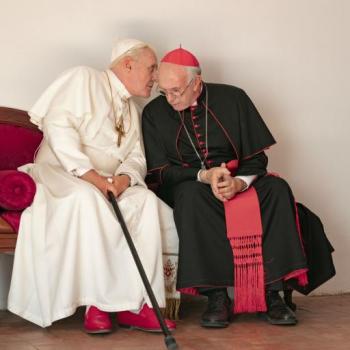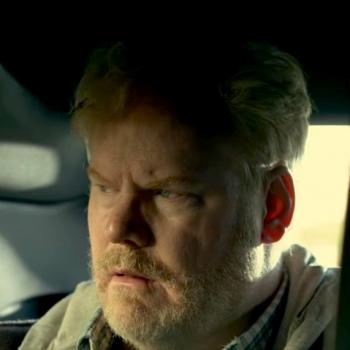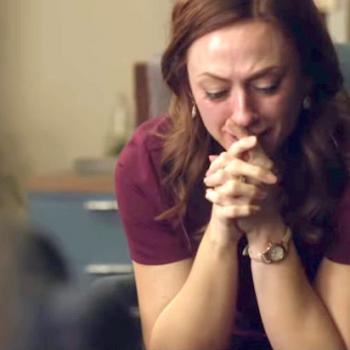And, perhaps fittingly, the star is literally a son of Grace.
His performance is both a tribute and a thank you to his father Chris, who brought him up after his mother walked out of the family home in Australia when Hugh was just eight years old. Both parents are English-born, but settled in Australia, where Jackman was born.
When the marriage broke up, Hugh’s mother, Grace, returned to England with his two sisters, leaving Chris, a Cambridge-trained accountant, to bring up him and his two brothers.
Hugh says: ‘I remember the day Mum left. I was going to school in the morning, and she must have just washed her hair, because she was wearing a towel round her head. There was just something about the way she said goodbye . . .
‘When I came home, she had gone. There was no one in the house. The next day a telegram came from England. Mum was back there. And that was it.’
Hugh, 44, who was in London for the premiere of the film, which also stars Russell Crowe and Anne Hathaway and has been co-produced by Cameron Mackintosh, says he owes so much to his father.
‘Without him, I wouldn’t be where I am today. Without him, I wouldn’t have had an inspiration for my role in Les Miserables. Dad underwent the same kind of life-changing experience that my character undergoes in the film.
‘Valjean steals religious artefacts from a bishop, is caught by the police but then —in an act of supreme kindness — is allowed to keep the artefacts and sell them, when the bishop denies the theft after the police capture Valjean and prepare to put him back in jail. The incident transforms his life, he becomes a respected town mayor.
‘Dad was converted by the Christian evangelist Dr Billy Graham when he was 30 years old, and underwent a life-changing epiphany, too.
‘I thought about that constantly when I was playing Valjean, I tried to inject as much of Dad’s goodness, and change of life, into the character I was playing.
‘I would recall conversations Dad and I had about his religious beliefs. He was an accountant at Price Waterhouse and I used to ask him whether his religion ever impacted on his work, whether it was ever an issue, or a subject for discussion.
He said it wasn’t, because religion, in his mind, was about deed rather than word. He said that talking about religion meant nothing, that practising religion through one’s actions meant everything.
‘And he was wholly sincere. He lived —and lives — his life through a firm foundation of principle and he is both my inspiration and my hero.’











